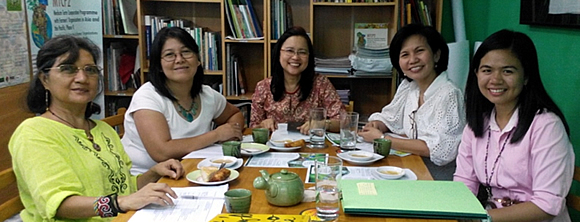Productivity Improvement

Increased productivity has traditionally been approached through technological improvement at various components of the farm production system spanning seeds, soil and sustenance interventions, and through improved farm practices and organization. Research in traditional plant and animal breeding, as well as in more modern albeit sometimes controversial biotechnology techniques, have pushed the inherent fundamental productivity of agricultural production, whether in crops, livestock or aquaculture fisheries. More efficient and effective application of other inputs, such as mechanization, crop protection interventions, irrigation and other farm management practices have similarly been the subject of beneficial research and innovation over the years. Productivity improvement achieved through these means leads to lower costs per unit of product, hence greater competitiveness and resilience in the economic dimension. It also leads to higher returns to the factors of production including labor, hence raising incomes. In turn, farmers and their families are able to improve their capability to address their human development and social welfare needs, thereby bolstering social resilience.
It is in the environmental dimension of resilience that the impacts of interventions toward productivity improvement could be ambiguous, where effects could either be desirable or undesirable. In particular, the continuing debate on the safety of the outcomes of biotechnology research and development, particularly in genetic engineering, has raised the prospect of a tradeoff between higher productivity on one hand and resilience or sustainability on the other. Healthy and informed debate on these issues is a necessary part of moving toward achieving wide consensus, if such is at all feasible. In any case, the deliberately inclusive nature of participation in ARD 2014 is designed to provide opportunity for such debate and consensus-seeking on the more controversial issues attendant to productivity improvement in food and agriculture systems.
Meanwhile, the theme of equity would be served through productivity improvement to the extent that equal access to knowledge on improved technology and farm management practices can be fostered and assured across the region. Mechanisms for intra-regional knowledge exchange and technology transfer should therefore be deliberately pursued, such as fostered by SEARCA through its university consortium and regular knowledge forums on relevant topics and issues common to the region. Similarly, the theme of integration is served through closer partnership across countries and across educational and research institutions in the region towards wider access to knowledge for productivity improvement. At the same time, economic integration through liberalized movement of factors and products across countries of the region would provide the very impetus for the countries lagging in terms of productivity and cost competitiveness to “shape up” and undertake deliberate measures to catch up.


 Download Conference Summary Report
Download Conference Summary Report Download Book of Abstracts
Download Book of Abstracts
 Download Conference Flyer
Download Conference Flyer


